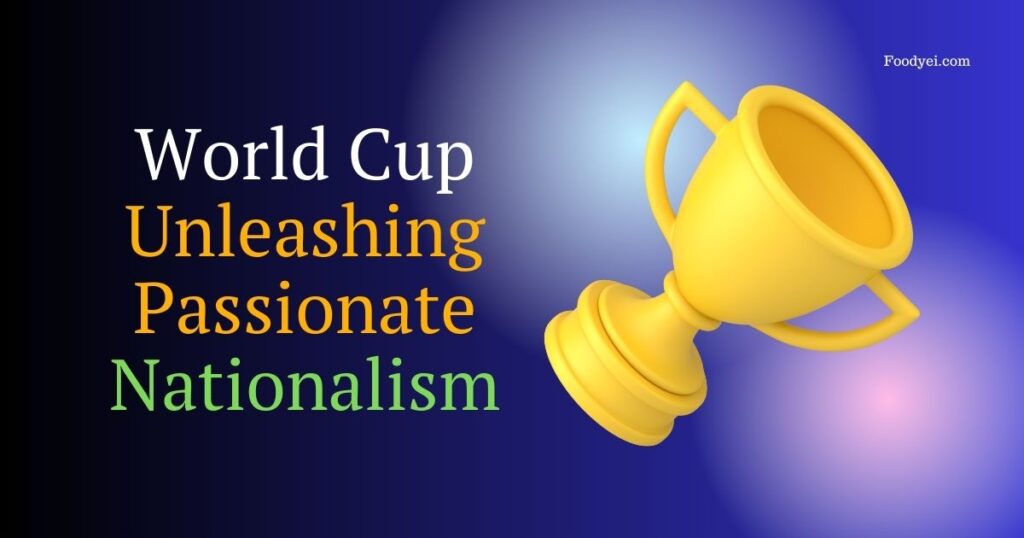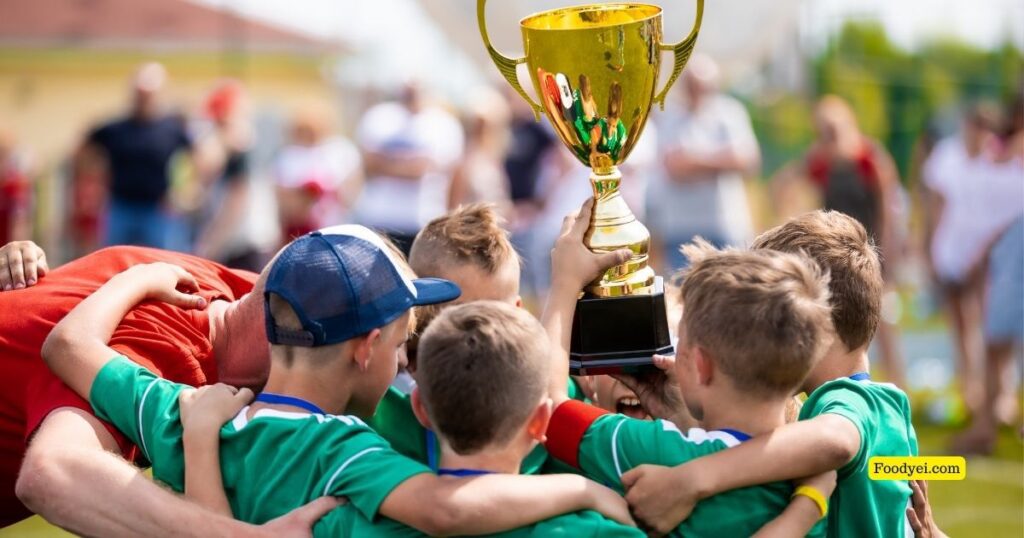Sports and politics, while seemingly separate realms have become deeply intertwined on the global stage. As national teams and mega-events like the World Cup and the Olympics enjoy unprecedented spotlights, sports now routinely mix with soft power projection, fierce nationalism, social activism, and subtle foreign policy maneuvers. This blog closely examines the Impact of Politics on Sports.
Olympics Offering National Prestige and Soft Power
The Olympics provide a premier quadrennial platform for countries to amplify pride and project political influence through sports. Showcasing competitive prowess feeds nationalism with entire nations cheering on their athletes. Hosting the Games also enables smaller nations to signal modernity, technological capabilities, cultural richness, and political values by putting their best face forward for billions of global viewers.
Olympic success becomes a de facto proxy for international status and superiority, with medal counts quantifying prestige. Individual athletes become heroes celebrated as embodying their homeland’s ideals. Boycotting Games deals devastating soft power blows by excluding nations from this pivotal world stage and display for national advancement. The prominent pageantry of elaborate Opening and Closing Ceremonies promotions allows hosts to carefully craft an intended vision of their progress to the world.
World Cup Unleashing Passionate Nationalism
Even more, than the Olympics, soccer’s quadrennial World Cup holds unique and immense influence to ignite patriotic nationalist sentiments by showcasing national teams in the most prominent event in the planet’s most popular sport. The anthems, iconic fan colors and banners, and national team jerseys framing the World Cup foreground team identities as synonymous with their homelands in front of over a billion global viewers. Shared camaraderie closely watching matches offers communal experiences around the national teams, forging temporary but intense unity and national identity.

Goals and key victories in the World Cup can trigger euphoric communal celebrations across entire nations, with sports creating rare moments of collective national joy and pride. Agonizing World Cup defeats often traumatically imprint on the national psyche, with citizens genuinely grieving together in sorrow after losses. Historically heated regional and political rivalries like Brazil vs Argentina, England vs Germany, or Spain vs the Netherlands divide otherwise friendly colleagues and families into polarized camps based on national allegiance. The World Cup holds unmatched power to deeply stirs nationalist passions through sports.
Star Athletes Finding Voice as Activists
In an interconnected digital age, prominent superstar athletes are recognizing their fame enables advocacy for social and political causes by spreading influential messaging. Athletes kneeling, marching, or making memorable gestures against police brutality expand support for racial justice movements given the public tendency to follow cues from sports celebrities. Openly LGBTQ pioneers coming out accelerates cultural acceptance by putting widely known, respected faces to marginalized communities.
Vocal advocacy for gender equality and women’s sports issues by top female athletes maintains pressure on leagues, media, and officials to enact reforms. Athletes brave enough to speak out against authoritarian regimes, unethical sponsors, or risky policies earn global praise and attention for their stances that resonate more coming from prominent voices versus unknown activists. Launching philanthropic foundations and drives leverages star power to uplift marginalized groups, the impoverished, and important causes. For better or worse, athletes now routinely catalyze or amplify social and political change by strategically leveraging their hyper-prominent platforms. Sports stardom grants unprecedented individual reach.
Hosting Mega-Events as Soft Power Plays
Beyond the Olympics, hosting other major international sporting events also enables smaller nations to project political and economic clout on the global stage. Regional powers like Qatar and the UAE utilize hosting events like the World Cup and Formula 1 as PR opportunities to tout modernity, technological capabilities, and first-world status. Autocratic states often use glitzy spectacles to distract from human rights criticisms.

Cities leverage hosting to rebrand global images and portray openness. Major events act as elaborate advertisements promoting the host’s vision and national strengths to outside investors, tourists, media, and competitors. Prestige stems from orchestrating complex logistics and infrastructure capabilities while avoiding major embarrassments. Sports offer vehicles for reputation advancement.
Sports Boycotts and Protests as Foreign Policy
Boycotting major sporting events hosted by or featuring certain targeted rival nations represents a symbolic but inflammatory geopolitical maneuver. Noticeable absence of top athletes or teams from events hosted by adversary states with contested human rights records makes strong silent protests, with sports leverage used as an alternative to formal economic sanctions or military intervention.
Refusing handshakes, staging purposeful losses, or kneeling during anthems directed at opponents also impart disapproval. Historically impactful sports boycotts include the US-led 1980 Moscow Olympics boycott over the Soviet invasion of Afghanistan, and South Africa’s ban from Olympics through the end of apartheid rule in the 1990s. While just games, international sports competitions enable diplomatic messaging and soft power play short of open conflict between states.
Unified Sports Teams Promoting Reconciliation

In a few unique cases, fielding combined international sports teams from historic rival nations or conflicting ethnic groups within nations has promoted ideals of unity, reconciliation, and harmony. Joint Korean teams marching under a unification flag at Sydney 2000 and fielding combined rosters at the 2018 Winter Olympics and several World Cups conveyed ideals of inter-Korean reconciliation after decades of division.
Multi-ethnic Bosnian national teams helped mend wounds after the civil war. While often more symbolic than truly integrating, unified sports teams remind us that overcoming distrust toward shared goals is possible. People can be united by a common humanity and the spirit of competition, transcending politics momentarily through sports.
Youth Sports Exposing Harmful Nationalism
While sports traditionally teach values like teamwork and fair play, elevated youth sports can also expose harmful undercurrents of aggressive nationalism and exceptionalism. Incidents of disturbing fan chants, excessive goal celebrations directed at opponents, violent field invasions, and overly militarized language surrounding child competition demonstrate a dark side.
Winning and nationality seemingly become life-and-death matters, instead of just games for development. A blind patriotism approach toward team allegiances risks has concerning implications for future societal cohesion. Extremes of tribalism and unquestioned supremacy attitudes must be tempered by educational guidance on ethical competition, integrity, and diversity.

Conclusion
Clearly major international sports and geopolitics mix in complex, meaningful ways in the modern era. While no easy answers exist for balancing politics with pure competition, recognizing this tight fusion is the necessary first step. Sports now channel nationalism, protest activism, diplomacy, and soft power on influential global stages. This carries both power and pitfalls that demand nuanced, ethical navigation. But this pervasive dynamic between sports and politics simply cannot be ignored or downplayed as mere fun and games. The stakes have been raised.
Frequently Asked Question About Impact of Politics on Sports
How will intensifying geopolitical tensions impact sports like the World Cup and the Olympics in the coming years?
Further politicization seems likely, with the potential for boycotts, divisive protests, overt shows of nationalism, soft power jousting, and sports venues being used for diplomatic grandstanding.
What risks do political activism protests pose for athletes’ careers? How can they demonstrate effectively but carefully?
Disrupting competitions risks suspensions. Partnering with respected organizations lends legitimacy to messaging. Tactful phrasing avoids alienating fans. Strategic selective timing and scalable gestures calibrated based on response.
When does ostensibly harmless sports nationalism slip into dangerous exceptionalism?
Pride in achievement is natural. But aggression, forced conformity, racism, xenophobia, cheating, and win-at-all-costs mentalities corrupt healthy competition and divide us.
How does the rise of multicultural rosters change traditional links between sports and national identity?
Positively, expanded diversity promotes inclusion. But heavily integrated national teams also dilute the power of domestic players representing their native homelands in some fans’ eyes. There are trade-offs.
Where should ethical lines be drawn between political expression and just sports?
No easy answers exist. Both have a place if respectfully balanced. But forcing athletes to stick to only sports suppresses voices. And making games overwhelmingly about politics diminishes their power to unite across divides.
Could lavish sports mega-event budgets be better redirected toward humanitarian initiatives?
If even partially reallocated, sports budgets could uplift marginalized groups’ welfare significantly. Hosts must balance showcasing strengths with enacting lasting social impact.




